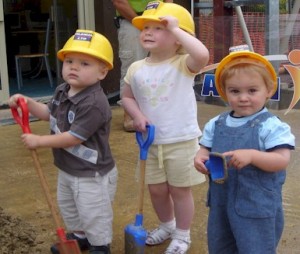These impressive folk are, to an extent, placed upon pedestals for their dedication to their work & the company. But (and I mean no disrespect with this comment, so please forgive me super-dedicated-colleagues) do they actually get any more work done than those of us who merely work our hours do? Or, is the respect they are endowed with based upon presence (and possibly stamina!) rather than a measured output. Do we even measure output, or is it just hours? More worryingly it seems that this additional ‘commitment’ is something that is not merely admired, but is something that the business has come to rely upon and expect in order to function & generate profit. Certainly it has been said to me that I will need to “give 110%” and “expect to have to give up” some of my STEM activities, which are mainly done in my own time, when I get to a senior level.
I know that beyond 8 hours I am not as effective as I am at hour 2 or 6 of the working day. It’s not just because I know I’m due to be at home, but because I’ve used up my brain’s capacity and focus for the day, I need to go home & rest, relax and eat. With the way that extra hours at the top seem to be the norm I had started to wonder if that need to rest was just me being weak and would damage my career. I did a little reading though, and it’s not just me. There are some great articles out there, this being one of them, which brilliantly summarise the research that has been done proving that workers, particularly knowledge workers, are just not as effective when working longer hours. Way back in the 1890’s employers found that by decreasing the working day to 8 hours, productivity per worker increased. Somehow we seem to have forgotten that.
I think certain industries, engineering consultancy being one of them, have an issue with machismo regarding hours worked. Also it’s a lot easier to measure hours worked than quality & quantity of work output & the impact that work has, but that’s a whole new blog post. I don’t know what the answer is though, except possibly for us dedicated “9-5ers” to infiltrate the top ranks (if such a thing is even possible!) and grow understanding around the benefits for all parties in folk only working an 8 hour day.
But until that happens, if you’re reading this in the office, past home time, then stop ‘demonstrating your company commitment’ and go & show your family & friends some commitment instead. Then come back in tomorrow morning & show how amazing you are after a good evening of rest and relaxation.










